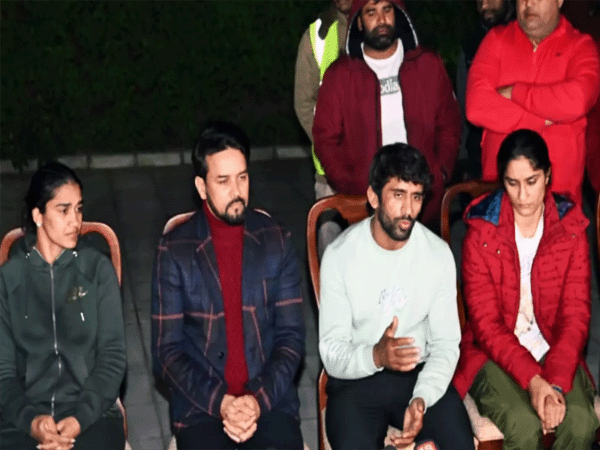
In some extremely disappointing news, UWW, the world body for wrestling, has suspended the Wrestling Federation of India (WFI) for not conducting elections. While we have yet to see the letter, sources confirmed that the UWW had originally given the WFI a 45-day deadline to conduct elections, which had not been complied with. In fact, it has now been over three months since the deadline was set.
This draws attention to two things. First, global sport has a certain structure to it, which states that National Federations need to draw recognition from world governing bodies of that particular sport. Sadly in India, we don’t seem to be complying with this reality. Second, in matters of sports governance, India’s record continues to be dismal.
Indian athletes have clearly raised the bar in recent years, but that progress has not been matched outside the arenas.
In wrestling, the junior world championship was stellar for India. In archery, the Indian contingent did outstandingly well. Badminton has started to do very well again. And despite a blip in the ongoing World Championship in Budapest, India’s track athletes have delivered with multiple Olympic quotas already in the bag. Football has been on a high with three back-to-back tournament wins.
Since the Tokyo Olympics, where India finished with seven medals, the narrative around Indian sport has mostly been positive. The Paralympics were an eye-opener, with India winning 19 medals and thereafter the country has done consistently well in wrestling, badminton (the Thomas Cup win being the high point), boxing with Nikhat Zareen coming through the ranks, hockey and table tennis, not to forget athletics and squash. Neeraj Chopra has consistently performed at the world level. The Prime Minister’s words from the Red Fort on August 15, and also on Maan ki Baat are a clear case in point.
However, the moment we turn our gaze to the leadership structure in Indian sport, to some federations and the leaders administering them, it isn’t wrong to say that things are a complete mess. Leadership is at its lowest ebb, and the affairs are mismanaged with roadblocks everywhere. Wrestling has already caused us serious national embarrassment, and chances are that India might lose the right to participate under the national flag in the forthcoming World Championships.
With no elections held, the WFI now stands suspended. And we have to say this is a failure of governance. At a time when we are speaking of a new, resurgent India, instances like these cause serious national disappointment. And when we deep dive into sport, this isn’t the first time it has happened. In 2012, the IOA was suspended on grounds of corruption and inefficiency. More recently, the AIFF was suspended by FIFA,,and volleyball too had a similar experience.
While this started with Archery and football, we now have court-appointed committees or ad hoc bodies running multiple other sports federations in India.
So what’s the way forward from here? Will the efforts to help change Indian sports be undone by poor governance from federation heads and others? Will the Sports Ministry be able to play the pivotal role in helping this process?
So far, specified timelines have often been ignored as we have seen in the case of the WFI. The writing is clearly on the wall. Just like the athletes, who now have accountability and are held responsible for the monies spent on them, we need to make our administrators accountable. Elections need to be held on time, and things not pushed over the cliff leaving world bodies no option but to take action.
From 1976 onwards, each time an Olympics was held, the post-Olympics headline would read: a billion people with these few medals. Things started to change in Tokyo. We started to believe in sport and in our athletes. For the first time, there was positivity about India becoming a multi-sport nation. The highest leaders of the country, at the centre and states, helped with this change. At no cost can we sacrifice these gains. Our athletes deserve better, and so do we.



